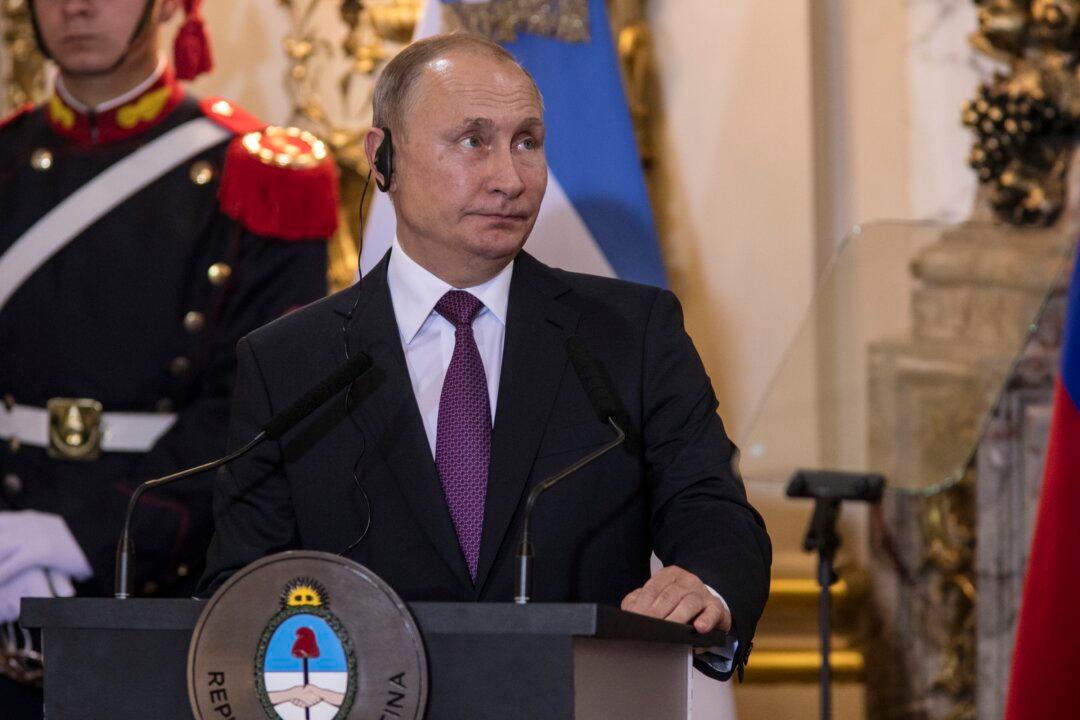Russian President Vladimir Putin said on Dec. 5 that Moscow will respond to Washington’s exit from the Intermediate-Range Nuclear Forces Treaty (INF) by building missiles currently banned by the pact.
Putin’s televised remarks were a response to an ultimatum delivered Dec. 4 by Secretary of State Mike Pompeo, who said the United States will begin the formal withdrawal process from the treaty in 60 days unless Russia takes steps to comply with the treaty.





